Disclosure: Meeple Mountain received a free copy of this product in exchange for an honest, unbiased review. This review is not intended to be an endorsement.
When it comes to deckbuilders like Draconis Invasion, expansions are inevitable. They are card games and like any other card game, you want to add more cards to your existing game to increase its lifespan. Nothing wrong with that. What I wasn’t expecting was an expansion that I could fit in my front jean pocket.
The Glory expansion is so small that the rules are on a single card. If I manage to squeeze a 2000 word review of this, I need to consult an exorcist, because there is clearly something wrong with me that science cannot explain.
This is a module-based expansion made up of three modules. You can use as many or as little as you like from this expansion and they can work with the previous Draconis Invasion expansion, Wrath (check out my review of the base game and Wrath expansion here).
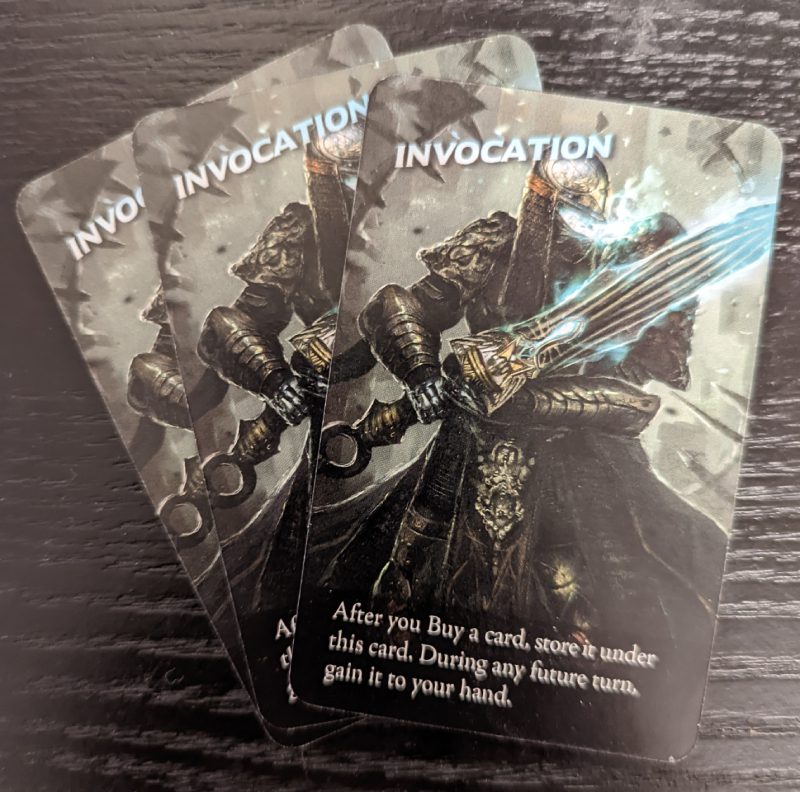
Pray for good cards
We’ll start with the easiest one to explain. Invocation is a special card that’s always face up in front of you. Whenever you buy a card, you may store it under the Invocation to use in a future turn with a limit of 1 card at a time under the Invocation card. That’s it.
It is my favorite module out of the three. I don’t have to worry about complicated rules overhead, and it sneaks itself into the game’s infrastructure without anyone noticing it too much.
Draconis Invasion’s biggest strength was always the pacing. While it maintains the basic formula of “buy gold cards and eliminate crap cards in your deck” founded by Dominion, the Forward action you can do in Draconis helps quicken the pace and give some sense of control. With Invocation, the speed goes into a whole new gear.
Now you carry over any card you bought into a future turn. Bought a gold card? Use it to boost your next purchase or to play Defender. If you just purchased an Action card that you need for quick gains, Invocation grants you this tactical choice. You get the idea.
Besides the surface level theory crafting, it also helps against the more aggressive cards in the Wrath expansion or Event cards that force you to discard from your hand. Since the card is under your Invocation and not part of your hand, this is a way to defend your recent purchase.
Easily a winner, and I will always use it in every game.
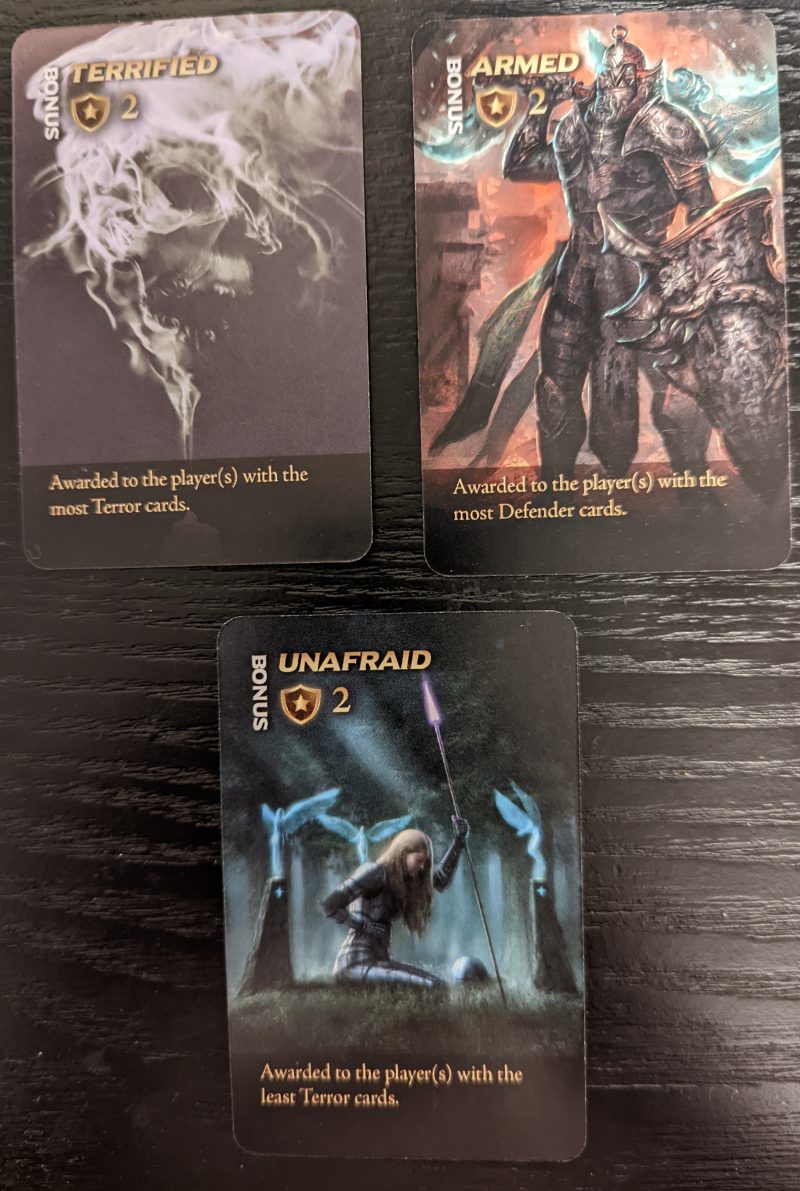
Being an objective player
The second module is the Bonus cards. Essentially, they are end-game objectives to earn additional Glory points such as most Terror cards or Defender cards. Like the Invocation module, it’s understandable at first glance.
While it is certainly comprehensible, it is one that I would only use for experienced players.
To the game’s credit, Draconis Invasion has a lot going on for it despite the simple ruleset. Not only do you have to worry about peeling off the crappy cards from your deck, but you also need a good mixture of Action, Defender, and Gold cards to bash the Invaders. Campaign cards also entice you to go for specific Invaders for bonus points. Furthermore, the Invaders with their reveal effects will often mess up your gameplay and if you go too far ahead of the pack, the Event cards will further compound these issues.
That is a lot of seats that need to be filled here and for people new to the game, it may come across as intimidating. If you throw Bonus cards into the mix, the situation becomes even more daunting to them.
As a veteran of the game, I do appreciate this since it adds another level to consider when building my deck. Even if I have the same market setup in back-to-back games, having different Bonus cards will certainly make me re-evaluate my decisions and strategies. It’s a module that I won’t always use, yet won’t stray away from either.
I’m sure you’ve heard of the cliche phrase “Save the best for last” right? We aren’t doing that today.
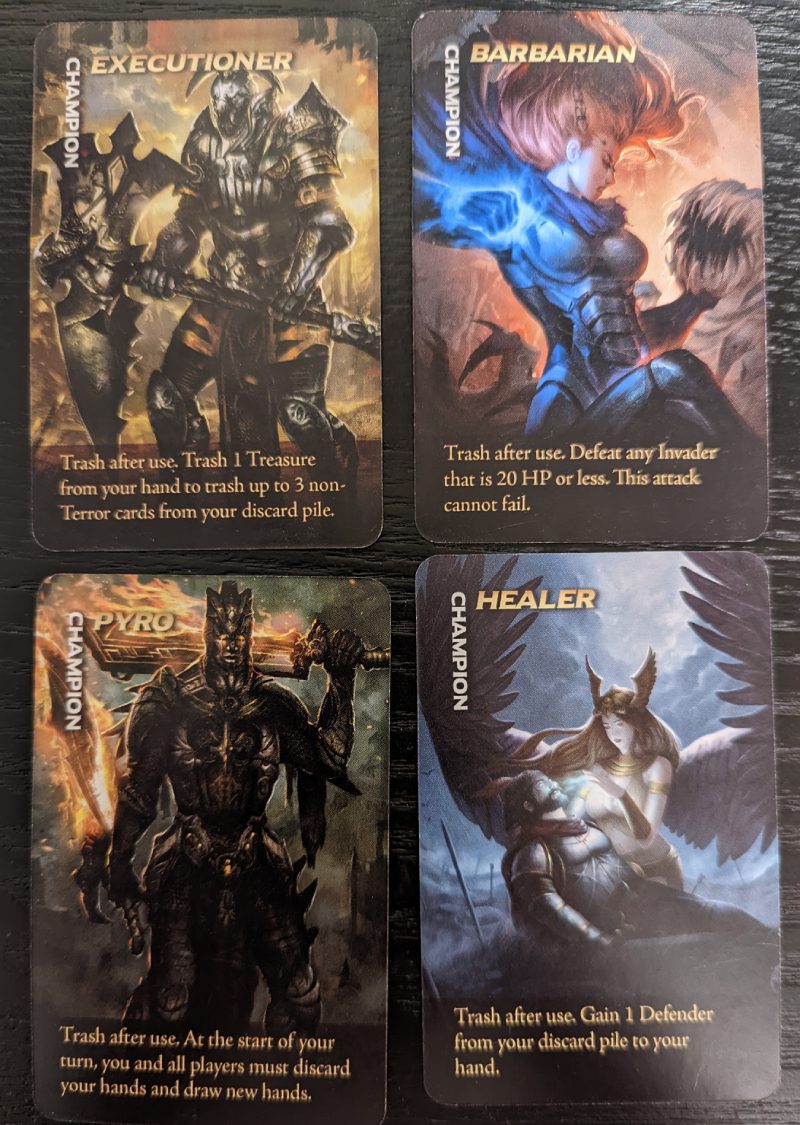
No time for losers
The third and final module is the Champions. It is the expansion’s attempt to give everyone asymmetrical powers without changing anything about their starting decks.
Every player is dealt two Champion cards that they look at but place face down, so no one knows what they have. Each Champion represents a one-time power and when to use them is dependent upon the power itself. The Butcher allows you to defeat 2 Invaders in one turn instead of one, and the Healer gives you a Defender card from your discard pile into your hand.
All of this sounds pretty decent, so why am I not a fan of it?
I said it earlier in this review and I’ll say it again: Draconis Invasion’s biggest strength is its pacing. The Champion cards body checks this aspect into the ground.
A good portion of the Champions, at least in the sample given to me, mess around with the game’s stride a little too far. The Healer is such an example, where it can bring in an expensive Defender card from the discard pile to play it again, giving the insane opportunity to double-dip. The Scoundrel gives you the opportunity to block an opponent’s attempt to defeat an Invader by rolling a die.
Even the concept itself is extremely foreign to the rest of the game. In the three games I’ve played with this module, my friends and I kept forgetting to use these cards because they didn’t fit in naturally as the Invocation or Bonus cards.
I guess you can say this is the strength of module expansions. If you don’t like something, don’t use it. Draconis Invasion is one of my favorite games, and I certainly appreciate the value of Invocation and Bonus cards. Although I’m sure there will be people who enjoy the Champions module, I don’t. 2 out of 3 seem pretty good to me, which I can’t say about most module expansions that I tend to dislike and often see as a red flag.


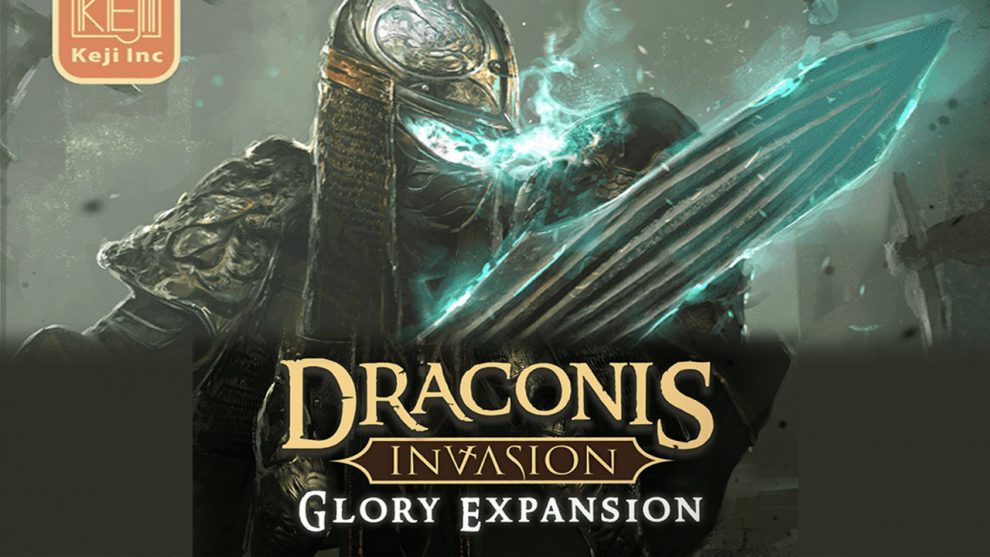
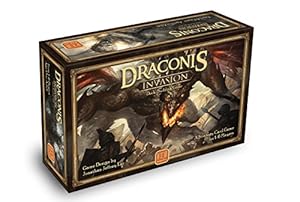

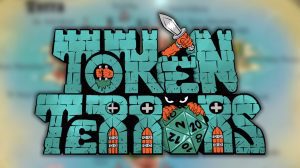
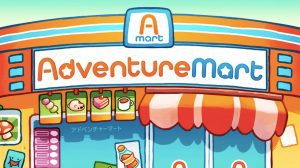





Add Comment